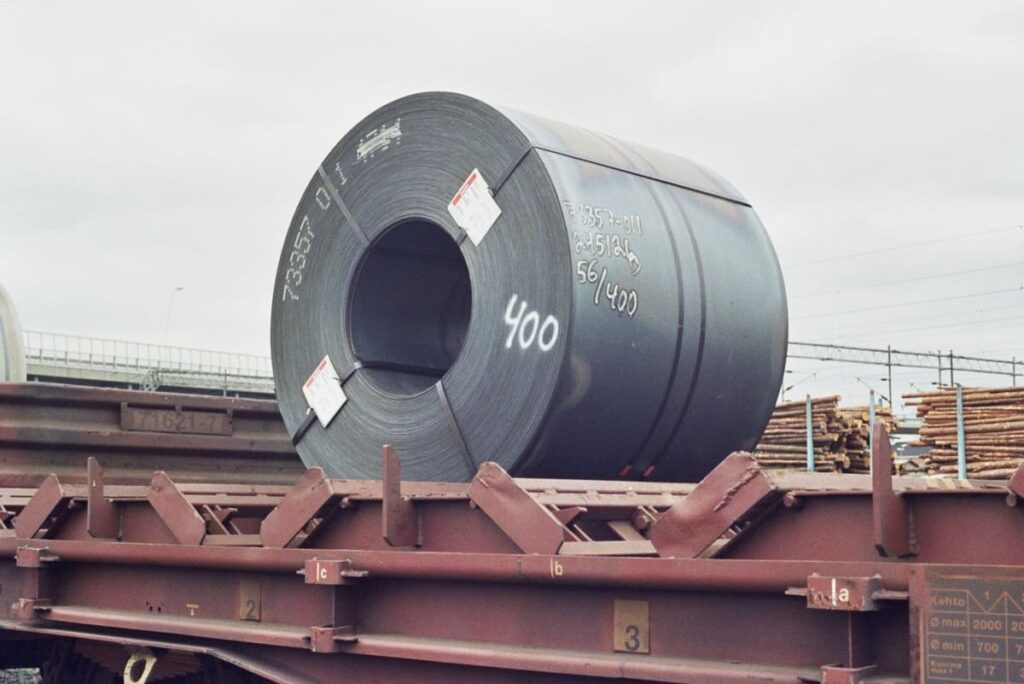 A recent motor vehicle crash caused by a loose coil that had fallen onto Interstate 94 highlights one of the most significant, yet seldom discussed, dangers on the road today: falling truck debris.
A recent motor vehicle crash caused by a loose coil that had fallen onto Interstate 94 highlights one of the most significant, yet seldom discussed, dangers on the road today: falling truck debris.
A Loose Payload of Coils
On September 12, 2017, an unidentified driver was heading westbound on I-94 in a sedan, approximately half a mile west of the Lake Station exit in northwest Indiana. At that time, a semi-truck directly ahead of the vehicle lost control of its payload of coils. Almost immediately thereafter, the sedan crashed into one of the loose coils, causing severe front-end vehicular damage, according to a statement by the Indiana State Police, who are currently investigating the incident.
Luckily, the occupant or occupants of the sedan reported only minor injuries, but many other Americans have not been as fortunate. In fact, studies show that roadway accidents caused by falling truck debris are surprisingly frequent and dangerous – and, far too often, deadly.
Falling Truck Debris: Some Statistics
According to a study released by the AAA Foundation for Traffic Safety in 2016, unsecured or improperly secured debris falling from trucks and trailers caused more than 200,000 crashes in the United States from 2011 through 2014. These crashes resulted in approximately 39,000 injuries and 500 fatalities. AAA reported that the rate of such incidents was up 40% since 2001, when the organization first began studying the problem.
A 2012 Government Accountability Office (GAO) study suggested even worse numbers. Based upon data drawn from the National Highway Traffic Safety Commission, the GAO found 10,000 injured and 440 deaths in 2010 alone because of accidents involving unsecured cargo.
In most cases, these injuries occurred when the debris struck vehicles directly, often setting off a chain reaction of collisions with other vehicles. However, it is not necessary for fallen cargo to make direct contact with a vehicle to cause severe injuries. More than one-third of the fatalities noted in the AAA study occurred when a driver swerved to avoid hitting roadway debris and instead collided with other vehicles and obstacles or veered off of the roadway.
The Trucking Industry’s Responsibility…and Liability?
The loading of commercial cargo trucks is strictly regulated by the Federal Motor Carrier Safety Administration to minimize these types of incidents. The cargo must be properly fastened by the number of “tie-downs” appropriate for its size and weight. It must be secured in such a way as to withstand acceleration, backing, and turning forces so that it does not shift, roll, or come loose. There are also specific rules for hauling certain types of cargo, including vehicles, concrete pipes, logs and lumber, metal coils, paper rolls, intermodal containers, and even large rocks and boulders.
Officers at weigh stations are supposed to strictly enforce these cargo regulations, and they can levy fines of up to $5,000.00 for improperly secured commercial loads. Unfortunately, only a small percentage of these loads are ever inspected at weigh stations, with many truck drivers deliberately taking steps to avoid them entirely. Consequently, most loads remain unchecked from the moment they leave the warehouse to the moment they arrive at their destination, providing ample opportunities for corner-cutting, often with tragic results.
Further encouraging trucking companies to cut corners on their legal duty to secure cargo properly may be the lack of sufficient legal penalties in certain states. The aforementioned GAO study found that more deaths and injuries from falling truck debris occurred in states with fewer laws in place to deal with offenders, with some states fining as little as $10.00 for unsecured loads – essentially equating something so potentially hazardous with common littering.
Clearly, while there are laws in place designed to prevent such tragic incidents, in far too many cases an injured party’s chief remedy may be through litigation.
Truck Accident Litigation
As is usually the case, litigation for commercial truck accidents can be more complex than with other types of auto collisions because of how many parties may be involved. In addition to the driver, and the commercial transport company for whom he or she works, there is typically another company that hired the commercial transport company to ship its goods, and possibly even other companies still. Determining who is responsible can be especially difficult, and this difficulty is compounded in collisions caused by falling truck debris.
In these cases, the truck driver, the commercial transport company for whom the driver works, the company or companies that hired the commercial transport company, and even the warehouse where the cargo was loaded may all share responsibility for any injuries or damage the falling cargo may have caused. It is therefore very important that all parties who are potentially at fault can be identified and pursued within the time limited by law, known as the statute of limitations, which is typically two years in most states, including Illinois. Failure to do so in a timely fashion could forever bar plaintiffs from obtaining the financial compensation they deserve.
For all of these reasons, injured people in these types of cases often find that they benefit from the help and guidance of an experienced attorney, like the truck accident attorneys at GWC Injury Lawyers, Illinois’ largest Personal Injury and Workers’ Compensation law firm.
If you or your loved one has been injured, from falling truck debris or in some other way, please contact GWC today to schedule a free consultation with one of our attorneys. Call our office at (312) 464-1234 or click here to chat with one of our representatives.
<< BACK TO BLOG POSTS